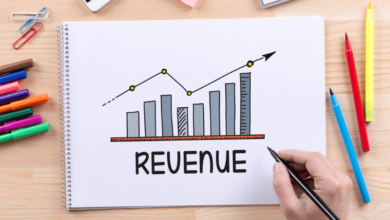What You Need to Know About Business Valuation in the U.S.

Businesses are often valued this is a very important process for an entrepreneur, investor, and stakeholder who is either buying or selling or providing a loan to a company. A thorough understanding of a business’s true value allows improved decision-making, strategic planning, and efficient financial management. This guide looks at business valuation, its methods, and practical steps in detail, with specific information relevant to the U.S. markets.
What is Business Valuation?
Business valuation is the process to find out the economic value of your company. You are not a financial advisor; it determines the relevant factors that determine financial performance, market conditions, assets, liabilities, and market trends. Business valuation, if done correctly, is key for U.S. entrepreneurs and investors alike when it comes to mergers and acquisitions, tax planning, investment analysis, and strategic growth planning.
Importance of Business Valuation
There are several reasons why accurate valuation is critical for U.S. businesses:
How Much to Pay or Accept for a Business?
- Investments: Return on investment for shareholders or investors.
- Tax Compliance: Following IRS rules for transfers of a business to an heir or family member as well as estate planning.
- Financial Reporting: Ensuring transparency and value for stakeholders and investors.
- Strategic Planning: Growing and expanding businesses in a competitive marketplace.
Methods of Business Valuation
There are various popular business valuation methods, each of which provides some insight into the financial health of a business. Below, we explain the most common methods and offer additional U.S.-specific considerations.
Income-Based Approach (Discounted Cash Flow DCF)
The Income-Based Approach is used to estimate the value of a business based on its potential to produce future income. A common approach within this module is Discounted Cash Flow (DCF) analysis, where the present value of projected future cash flows is calculated using the time value of money.
Steps in DCF Analysis:
- Prepare Estimates For Future Cash Flows: Project revenues and expenses on the basis of historical data and estimates.
- Establish the Discount Rate: In the U.S., the discount rate commonly represents the Weighted Average Cost of Capital (WACC) and is typically computed via the Capital Asset Pricing Model (CAPM). The risk-free rate is often based on U.S. Treasury yields, adjusted for the type of risk of the business.
- Discount Projected Cash Flows: Use the chosen rate to discount the projected cash flows.
This approach involves the careful selection of discount rates, which will differ depending on the company, its sector, and market conditions for U.S. firms.
Market-Based Approach
The Market-Based Approach compares a business with other similar companies in the market. This approach can be broken down into two major techniques:
- Comparable Company Analysis (Public Comps): This method uses publicly trading companies that trade on U.S. exchanges such as the NYSE or NASDAQ to benchmark the business’s value based on financial metrics (for example, P/E ratio, EV/EBITDA).
- Company Comparables (Precedent Transactions): This method analyzes the pricing and terms of recent mergers and acquisitions of similar companies, typically with an American focus. The appraisal is obtained by measuring the sales prices of comparable firms down within the same industry and geographic area.
This approach is based on U.S.-specific data points for both public companies and M&A activity and allows for comparison of valuation multiples according to the current environment.
Asset-Based Approach
An Asset-Based Approach looks at the value of a business’s assets and liabilities. It’s especially pertinent for businesses with substantial physical assets, such as real estate or machinery. The math is simple:
Business Value = Total Assets — Total Liabilities
For businesses in the U.S., assets need to be valued according to U.S. GAAP (Generally Accepted Accounting Principles) standards. This means that all financial statements are standardized, which is vital for companies that are public or undergoing regulatory scrutiny.
EBITDA Multiple Method
The EBITDA Multiple Method, applies a industry specific multiple to a company’s EBITDA (Earnings Before Interest, Taxes, Depreciation and Amortization). This method is widely used in the U.S. due to its simplicity and ability to quickly evaluate operational economy.
Calculation:
Business Value = EBITDA * Industry Multiple
Companies in the U.S. must find industry specific multiples from reputable databases, such as PitchBook or S&P Capital IQ, established in the United States, to ensure the accessibility of relevant data from the U.S. market. These multiples differ across companies depending on their size, market position, and growth potential.
How to Calculate Business Valuation: Steps in Practice
For business owners in the US, knowing how to accurately calculate a company’s value is an essential basis for making informed decisions. So how do you go about the calculation?
Gather Financial Data
Keep your financial statements current specifically balance sheets, income statements, and cash flow statements. Valuation methods require precise and comprehensive data, especially when computing EBITDA metrics or predicting cash flow into the future.
Pick the Appropriate Valuation Method
Choose the best valuation method based on your business type, industry, and the data you have. For example:
- The DCF or the EBITDA Multiple methods may be more applicable for Tech or SaaS companies as they are more likely to generate earnings in the future.
- Real estate or manufacturing businesses may prefer the Asset-Based Approach as they have substantial fixed assets.
Analyze Market Conditions
As you weigh the valuation, factor in the state of the economy right now. If interest rates are increasing in the U.S., this could cause the discount rate used in a DCF model to rise, which would lower the present value of future cash flows, for example.
Consult Professionals
To receive an accurate and reliable value of your will, especially in the U.S., it is best to reach out to professional appraisers, financial advisors or accountants with experience of U.S. laws. They can help ensure that the valuation process meets legal requirements and is in line with industry standards.
Common Practices of Business Valuation
Follow these best practices to ensure that you get the most accurate business valuation in the United States:
- Revisit Your Valuation Regularly: Market conditions in the U.S. can be volatile. Regularly reassessing the value of your business will help make sure it’s in line with current data.
- Maintain Clean Books: Transparent financials — accurate and orderly — are vital for any valuation technique.
- Assess Intangible Assets: If your target is a U.S. company, or a technology company anywhere in the world, be sure to assess other types of intellectual property — especially patents, trademarks and reputation.
- Monitor Market Trends: Keep an eye on economic trends, technological developments, and regulatory changes that might impact your industry.
US Legal and Regulatory Considerations
Besides the valuation methods, there are different regulatory as well as legal factors that the U.S. businesses will have to consider while affecting the business valuation. For example:
- IRS Valuation Rules: For gift and estate taxes, the IRS mandates specific methods for valuing businesses, especially when passed down through generations or sold.
- Disputes among shareholders: Business valuations can also intervene in shareholder disputes, where the dispute can be avoided.
Here are 7 times you might find an accurate valuation of your business to be especially important: SBA Loans: Businesses in the U.S. applying for Small Business Administration (SBA) loans have to provide accurate valuations to gain financing.
Conclusion
Finding out the actual value of your business is very important for entrepreneurs and investors in U.S. Choosing the correct approaches to evaluation, obtaining trustworthy financial information and obtaining professional guidance makes it possible to gain an overall view of your company’s worth. Whether you want to grow, sell, or invest in a business, a firm understanding of business valuation is vital for success.
Appendix: To understand your business valuation (numerically) relative to a specific market, consider specialized valuation tools like BizEquity which offer tailored recommendations, or speak with valuation experts about conducting an appraisable valuation for your needs. Discovering the true value of your business could help you unlock its potential don’t let it be untapped!





